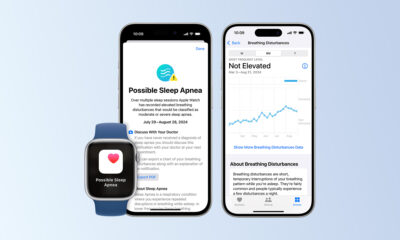News
Amazon Web Services Announces Its Plans To Open A Data Center In UAE
The company is also investing in local education initiatives and training programs to nurture the latent it needs to support its expansion.

Determined to strengthen its global infrastructure, Amazon Web Services (AWS), a subsidiary of Amazon providing on-demand cloud computing platforms, has just announced its plans to open a new data center in the United Arab Emirates (UAE) in the first half of 2022.
AWS currently has 80 Availability Zones across 25 geographic Regions. Once opened, the UAE data center will become AWS’s second Region in the Middle East, along with an existing in Bahrain.
“We are excited to build on the great momentum of cloud adoption in the Middle East by providing more choice for customers in the UAE to run applications and store data locally,” said Peter DeSantis, Senior Vice President of Global Infrastructure at AWS.
In addition to enabling e local customers with data residency requirements to keep their data inside the UAE, the new Region will also ensure low latency across the country when using Amazon’s growing suite of cloud services, which includes everything from storage to computer to analytics.
The UAE has been heavily focusing on becoming a thriving global hub for entrepreneurs and global enterprises alike by promoting technology innovation, and the new AWS Region will put it one step closer to achieving its goal.
Also Read: QFZA Announces Qatar’s First Laptop Manufacturing Facility
“AWS’s expansion into the UAE is a testament to our rapidly growing innovation ecosystem that will benefit from access to the world’s leading cloud platform and its advanced technologies and solutions,” said His Excellency Mohammed Ali Al Shorafa, Chairman of the Abu Dhabi Department of Economic Development.
In the near future, Amazon Web Services would like to launch 18 more Availability Zones and six more AWS Regions in Australia, India, Indonesia, Spain, Switzerland, and the United Arab Emirates. The company is also investing in local education initiatives and training programs to nurture the latent it needs to support its expansion.
News
Samsung Smart Glasses Teased For January, Software Reveal Imminent
According to Korean sources, the new wearable will launch alongside the Galaxy S25, with the accompanying software platform unveiled this December.

Samsung appears poised to introduce its highly anticipated smart glasses in January 2025, alongside the launch of the Galaxy S25. According to sources in Korea, the company will first reveal the accompanying software platform later this month.
As per a report from Yonhap News, Samsung’s unveiling strategy for the smart glasses echoes its approach with the Galaxy Ring earlier this year. The January showcase won’t constitute a full product launch but will likely feature teaser visuals at the Galaxy S25 event. A more detailed rollout could follow in subsequent months.
Just in: Samsung is set to unveil a prototype of its augmented reality (AR) glasses, currently in development, during the Galaxy S25 Unpacked event early next year, likely in the form of videos or images.
Additionally, prior to revealing the prototype, Samsung plans to introduce…
— Jukanlosreve (@Jukanlosreve) December 3, 2024
The Galaxy Ring, for example, debuted in January via a short presentation during Samsung’s Unpacked event. The full product unveiling came later at MWC in February, and the final release followed in July. Samsung seems to be adopting a similar phased approach with its smart glasses, which are expected to hit the market in the third quarter of 2025.
A Collaborative Software Effort
Samsung’s partnership with Google has played a key role in developing the smart glasses’ software. This collaboration was first announced in February 2023, with the device set to run on an Android-based platform. In July, the companies reiterated their plans to deliver an extended reality (XR) platform by the end of the year. The software specifics for the XR device are expected to be unveiled before the end of December.
Reports suggest that the smart glasses will resemble Ray-Ban Meta smart glasses in functionality. They won’t include a display but will weigh approximately 50 grams, emphasizing a lightweight, user-friendly design.
Feature Set And Compatibility
The glasses are rumored to integrate Google’s Gemini technology, alongside features like gesture recognition and potential payment capabilities. Samsung aims to create a seamless user experience by integrating the glasses with its broader Galaxy ecosystem, starting with the Galaxy S25, slated for release on January 22.


























